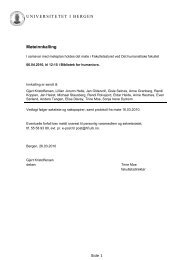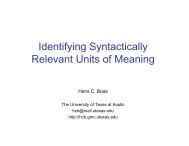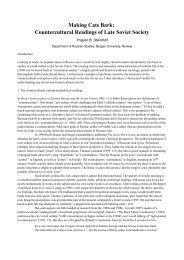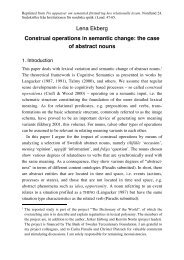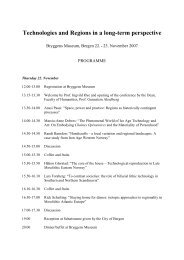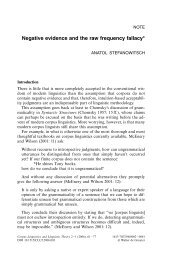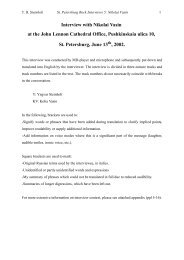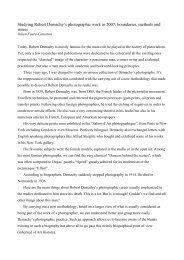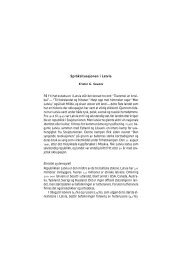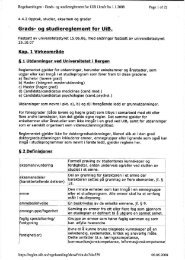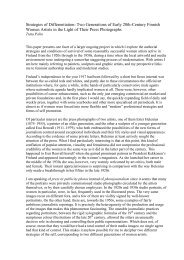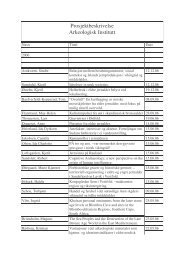THE BOOK OF POEMS IN TWENTIETH-CENTURY ... - TopReferat
THE BOOK OF POEMS IN TWENTIETH-CENTURY ... - TopReferat
THE BOOK OF POEMS IN TWENTIETH-CENTURY ... - TopReferat
You also want an ePaper? Increase the reach of your titles
YUMPU automatically turns print PDFs into web optimized ePapers that Google loves.
psychoanalysts and provide contemporary man with a better self-understanding: Мы<br />
надеемся, что эта причудливая смесь видений, фантомов, медитаций, простых<br />
признаний и непритязательных наблюдений даст пищу не только психоаналитикам,<br />
но и послужит к лучшему самопознанию современного человека.<br />
Such a goal recalls the spiritual project of Shvarts's poetry—to discover and<br />
express some sort of new reality, new knowledge. 208<br />
The publisher's description of<br />
Lavinia's verse as a "fantastic/odd mixture" more concretely echoes Shvarts's own<br />
description of the "маленькая поэма" genre: Сам сюжет состоит из борьбы<br />
метафизических идей, видений, чувствований, причудливо смешанных с мелкими<br />
происшествиями жизни. Контрапункт противоречий всегда находит<br />
гармоническое разрешение. 209<br />
Like the publisher, Shvarts aims to provide some<br />
greater understanding, a "harmonic resolution" of the dissonant, seemingly unconnected<br />
pieces of the whole. Thus it is largely Shvarts's voice that emerges in the foreword,<br />
disguised in the publisher's academic, anti-poetic language, to guide the reader into the<br />
text and into Lavinia's world.<br />
The foreword is followed by a letter from Lavinia's fellow nun to the publisher<br />
(Письмо сестры к издателю). 210<br />
Written in verse, it introduces Lavinia's poetry,<br />
describing the convent where Lavinia worshipped and Lavinia herself:<br />
Где этот монастырь—сказать пора:<br />
Где пермские леса сплетаются с Тюрингским лесом,<br />
Где молятся Франциску, Серафиму,<br />
208 У меня не столько эстетические задачи, сколько какие-то другие. Не хочу говорить духовные, но<br />
это какое-то постижение иной реальности через вещи, через людей, через себя саму, постижение<br />
чего-то иного. Это попытка получить знание, а какими средствами—мне более или менее<br />
безразлично. Polukhina, Brodsky, 201.<br />
209 Shvarts, Sochineniia¸ v.2, 62. Emphasis mine.<br />
210 These multiple letters and epigraphs which precede Lavinia's verse recall the vast amount of<br />
introductory material in Tsvetaeva's "Poema bez geroia." In both cases, the additional voices initially<br />
crowd out the central text and lyric persona.<br />
155



